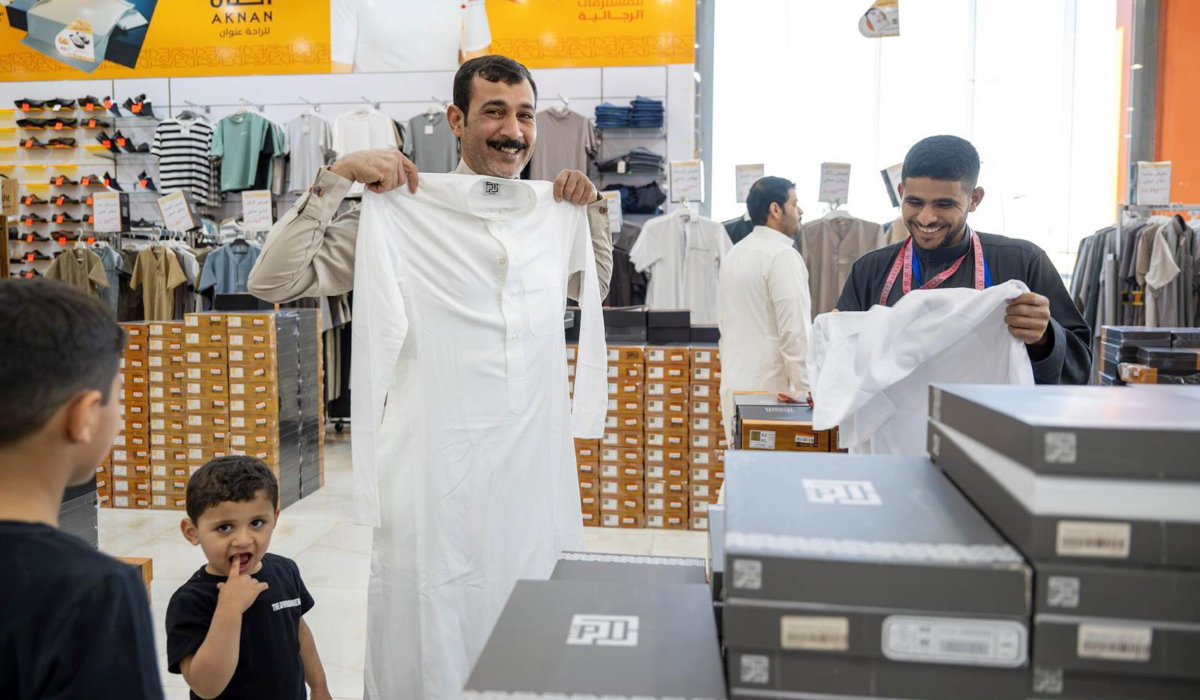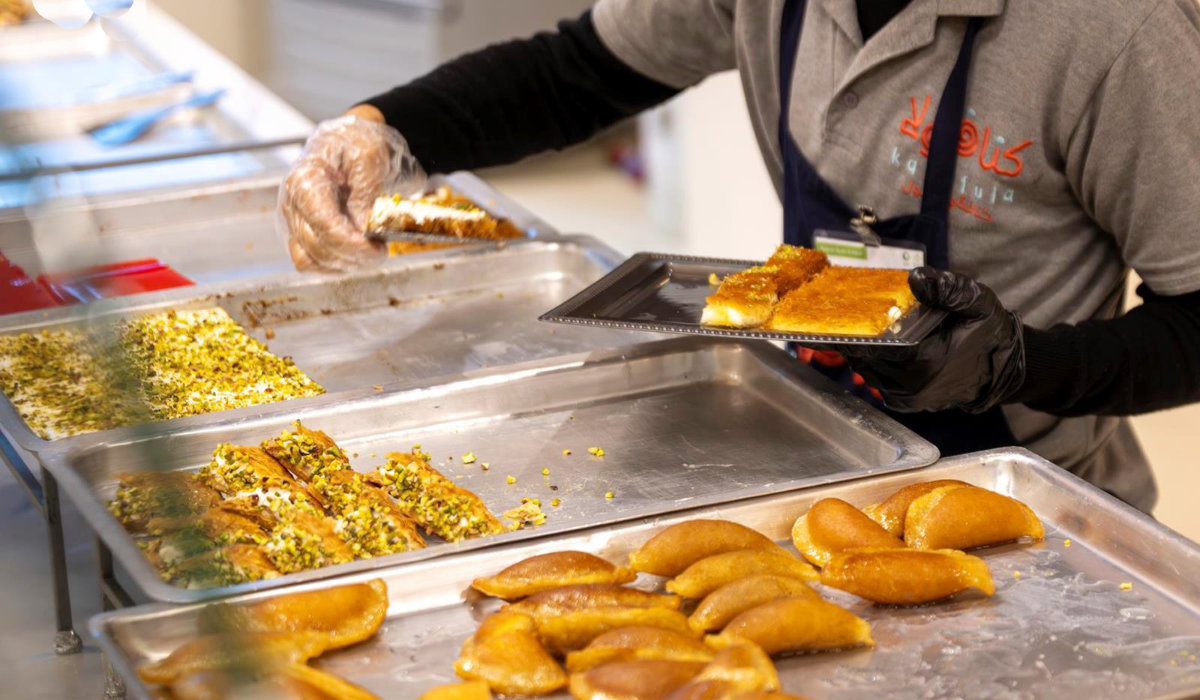JEDDAH: As Eid Al-Fitr approaches, tailoring shops, chocolate stores and barber shops in the Kingdom are doing brisk business as a large number of customers visit them ahead of the Eid Al-Fitr celebrations.
Jeddah’s traditional marketplace for thobe — the traditional Saudi attire — in Al-Baghdadia is buzzing with activity as vendors and tailors cater to the surge in demand for custom-made clothing.
Men, along with their children, flock to tailor shops for new thobes, while some shops have almost reached the maximum number of orders that they can deliver before Eid holidays. Some others will continue to receive orders until the last day of Ramadan, so will extend their working hours and increase the number of tailors in all shifts.

Eid shopping is in full swing, as shoppers flock to stores to buy new clothes, gifts, chocolates and other items in preparation of festivities. (SPA)
Usually, shops in areas such as Al-Tahlia and other popular souqs charge more for their services but customers are not deterred by the high prices.
“It is very difficult for me and my boys to change our tailor as he knows exactly what we want. Paying something like SR400 ($107) for one piece is nothing compared to having the right thobe for Eid,” said Mansour Al-Noamaan, who was trying to convince his tailor in Al-Bughdadya market to finish his thobes before Eid.
Mohammed Ali, a tailor, shared with Arab News that they have been very busy with orders during Ramadan, with their workload extending late into the night to fulfill customer demands before Eid.
FASTFACTS
• Besides thobes, chocolate and barber shops, the market for leather sandals and perfumes is also booming.
• Barber shops are attracting more customers and staying open for long hours to handle the great demand.
“It is OK with us because this is the best season for us, but the problem is those who come at the last minute and order new thobes,” he said.
Justifying the rise in prices, Ali said that it is a temporary measure taken to limit the number of customers as they have to follow a tight delivery schedule during this season.
Meanwhile, sweets-shop vendors in Jeddah seem to be less worried, as they are prepared to meet the big demand. Salah Darwish, the manager of a shop in Al-Rawdah district, told Arab News that the demand for chocolate and traditional sweets served during Eid was at its peak.

Eid shopping is in full swing, as shoppers flock to stores to buy new clothes, gifts, chocolates and other items in preparation of festivities. (SPA)
“In the last three days of Ramadan, customers start to flock to sweet stores because buying sweets for Eid is a necessity,” he said.
Munira Al-Harbi visited the shop with her children after a long day of shopping. “We are here to buy chocolate because what is Eid without chocolate? Traditionally, we present chocolate to visitors during Eid, in addition to Saudi coffee,” she said.
On the other hand, barbershops are also busy throughout the Kingdom with customers flocking to them to look their best during the Eid Al-Fitr holidays.
Due to the huge turnout of customers, barbershop owners have increased their service charges from the normal rate and are already taking advanced bookings.
Regardless of the price hikes, barbershops are attracting more and more customers. They open for long hours to be able to handle the great demand.
According to Oskan Najala, a Turkish barber in Jeddah, customers pay double the amount they spend during ordinary days to make themselves look good for Eid. He said that just three days before Eid they made the necessary preparations to receive more customers, employing additional workers to accommodate the demand.
“Eid night is the golden night for us as barbers where we operate for 24 hours,” he said.
“A new haircut for us is a must before Eid and part of the tradition,” said Walid Turkistani, a 39-year-old Saudi father of two.
While, Abdullah Ba Othman, an employee in Jeddah, said that going to the barbershop before Eid has been a significant part of preparations for the celebrations because Eid is the right time for many to restore their look. “It is as important as buying new clothes, shoes and other things.”
According to Ba Othman, a normal visit to barbershops costs him SR100 for all sorts of grooming treatments, but this Eid his barber told him it will cost him about SR300.
Besides thobes, chocolate and barber shops, the market for leather sandals and perfumes is also booming.





































